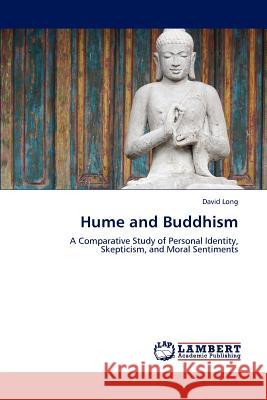Hume and Buddhism » książka
Hume and Buddhism
ISBN-13: 9783846582251 / Angielski / Miękka / 2012 / 264 str.
The body of the work is focused on a comparison between David Hume, on the one hand, and two Buddhist figures, on the other hand: Buddhaghosa and N g rjuna. The book analyzes some of the challenges surrounding a comparative discussion between Western philosophy and Asian systems of thought from a perspective grounded in academic philosophy, and some of the current issues which surround comparisons between religions in religious studies. There is an examination of the life of Hume and his notion of personal identity where Hume argues that we are merely a bundle of perceptions and nothing more. The work examines the life of Buddhaghosa and his view of personal identity. After this, Hume and Buddhaghosa's notions of the self are compared, as well as Hume and N g rjuna's skepticism. The book concludes with an examination of Hume's moral sentiments and the use of Buddhist meditation to advance Hume's hypothesis."
The body of the work is focused on a comparison between David Hume, on the one hand, and two Buddhist figures, on the other hand: Buddhaghosa and Nāgārjuna. The book analyzes some of the challenges surrounding a comparative discussion between Western philosophy and Asian systems of thought from a perspective grounded in academic philosophy, and some of the current issues which surround comparisons between religions in religious studies. There is an examination of the life of Hume and his notion of personal identity where Hume argues that we are merely a bundle of perceptions and nothing more. The work examines the life of Buddhaghosa and his view of personal identity. After this, Hume and Buddhaghosas notions of the self are compared, as well as Hume and Nāgārjunas skepticism. The book concludes with an examination of Humes moral sentiments and the use of Buddhist meditation to advance Humes hypothesis.











